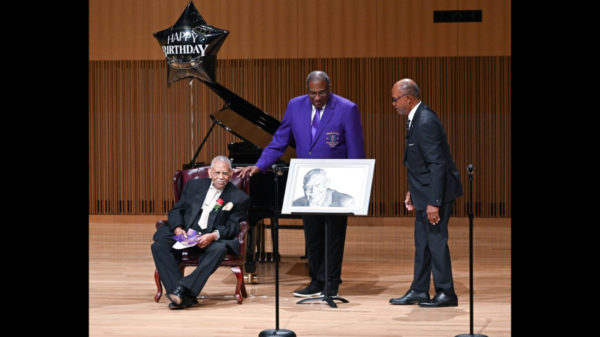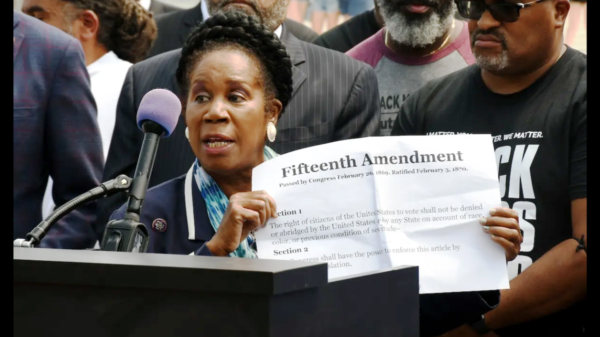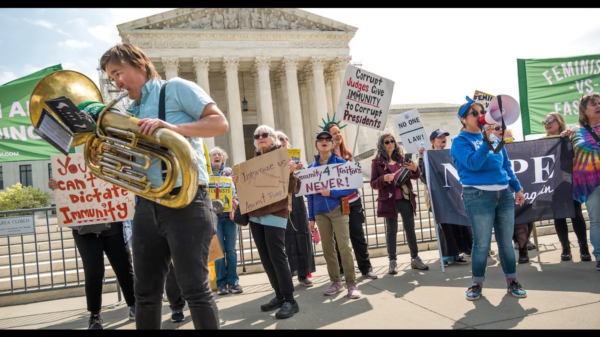
By Marc Morial
“The advancement of Black people into positions of power traditionally held by white people is a threat to white supremacy. It frustrates a narrative about merit, threatens the expectation of unlimited control and power, and opens the door to see things through a different lens. When that Black person is one who has fought for racial justice or who unapologetically brings experiences and perspectives to the table that have the potential to interrupt prevailing approaches to how the law is understood and applied, it opens a portal to see aspects of our society that are all too often beyond the range of vision of those in power.” – Sherrilyn A. Ifill, president and director-counsel, NAACP Legal Defense and Educational Fund Inc.
Her name means “lovely one.” Her parents chose it from a list sent by an aunt serving in the Peace Corps in West Africa in 1970.
Ketanji Brown Jackson, nominated by President Biden to serve as the first Black woman on the United States Supreme Court, was born into a unique moment of hope for Black Americans. “The hard work of the previous decade — the marches, the boycotts, the sit-ins, the arrests — had finally borne fruit,” she said. A Black man, Thurgood Marshall, had been serving on the Court for three years. The first Black woman federal judge, Constance Baker Motley – who shares Judge Jackson’s birthday – had been confirmed four years prior. It was hard to imagine that it would take more than 50 years for a Black woman to be nominated to the nation’s highest court.
Judge Jackson’s nomination is historic not only because she will be the first Black woman to serve as a Supreme Court Justice, but her service will mark the first time two Black justices have served together and bring the Court near to gender parity with four women justices.
But it is more than just her gender and her race that make her nomination historic. She will be the first justice to have served as a public defender, giving her a range of experience and perspective that currently is lacking on the Court.
“Most of my clients didn’t really understand what had happened to them,” she said during her confirmation hearing last year for the U.S. Court of Appeals for the D.C. Circuit. “They had just been through the most consequential proceeding in their lives, and no one really explained to them what they were supposed to expect so they didn’t know where things might have gone wrong.” That’s why as a trial judge, she took extra care to communicate with the defendants who come before her in the courtroom.
“When I have to sentence someone, I always explain to them, this is why your behavior is so harmful to society that Congress thought it had to be made a crime,” she said. “This is why I as the judge believe that you have to serve these consequences for your decision to engage in criminal behavior. I think that’s important for our entire justice system because it’s only if people understand what they’ve done, why it’s wrong, and what will happen to them if they do it again, that they can really start to rehabilitate.”
While we at the National Urban League are reviewing her record, Judge Jackson has already proven she is eminently qualified to serve on the U.S. Supreme Court. After graduating from Harvard Law School, Judge Jackson clerked for judges at every level of the federal judiciary, including former Associate Justice Stephen Breyer on the U.S. Supreme Court, and served as a federal public defender. With her extensive experience in both civil and criminal law, Judge Jackson is more than prepared for exemplary service on the nation’s highest court.
Judge Jackson has remained dedicated to fighting for the most vulnerable members of our society and fought for the constitutional rights of all — qualities that have been overlooked in recent nominations to the Court. This country deserves a Supreme Court that reflects the rich diversity of the American people, and this nomination brings us one step closer to realizing that goal.
Judge Jackson’s credentials, experience and expertise have been extolled widely by some of the nation’s most formidable legal minds. But the most meaningful endorsement came in a handwritten letter to President Obama in 2016, when he was looking for a replacement for the late Justice Antonin Scalia.
Dear Mr. President,
While you are considering judges to fill Justice Scalia’s seat, I would like to add my mother, Ketanji Brown Jackson of the District Court.
I, her daughter of 11 years old, believe she would be an excellent fit for the position. She is determined, honest, and never breaks a promise to anyone, even if there are other things she’d rather do. She can demonstrate commitment and is loyal, and never brags. I think she would make a great Supreme Court Justice, even if the workload will be larger on the Court, or if you have other nominees. Please consider her aspects for the job.
Thank you for listening,
Leila Jackson
Marc Morial is president/CEO of the National Urban League.









You must be logged in to post a comment Login